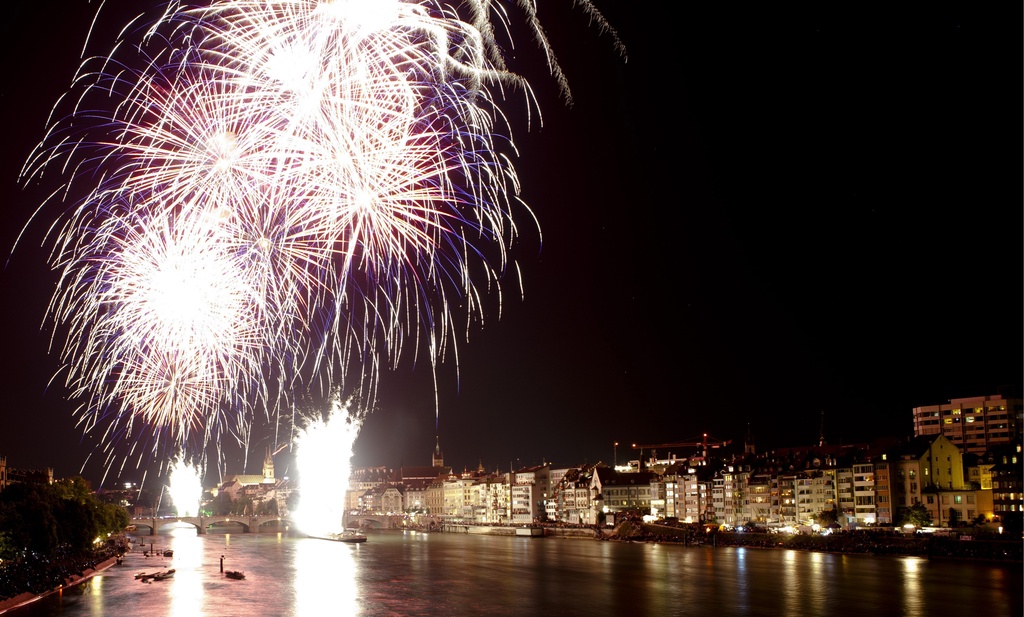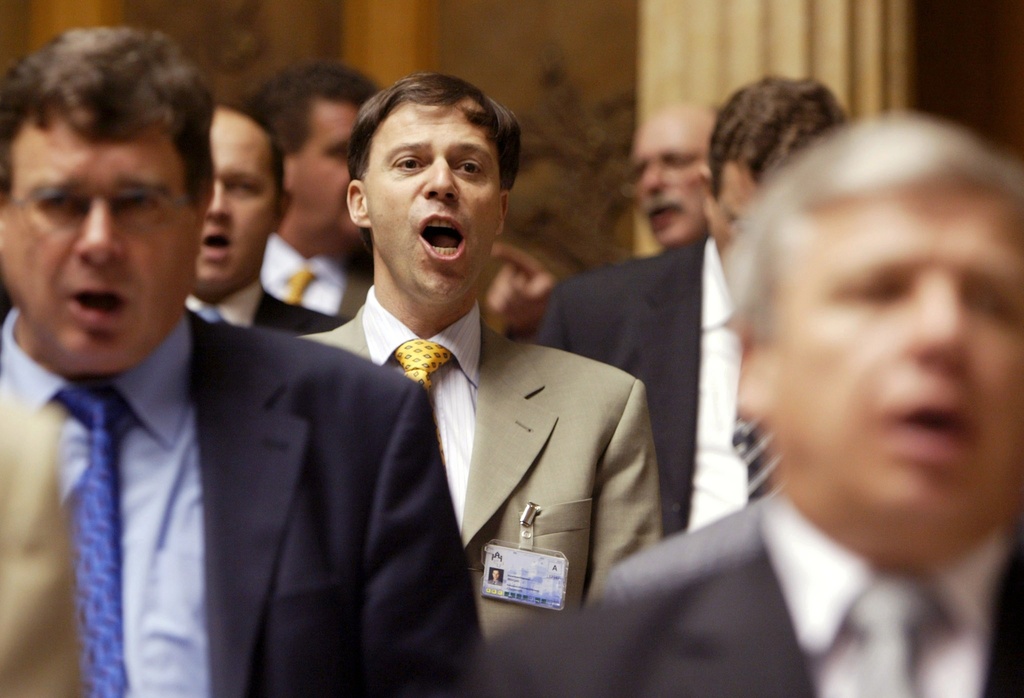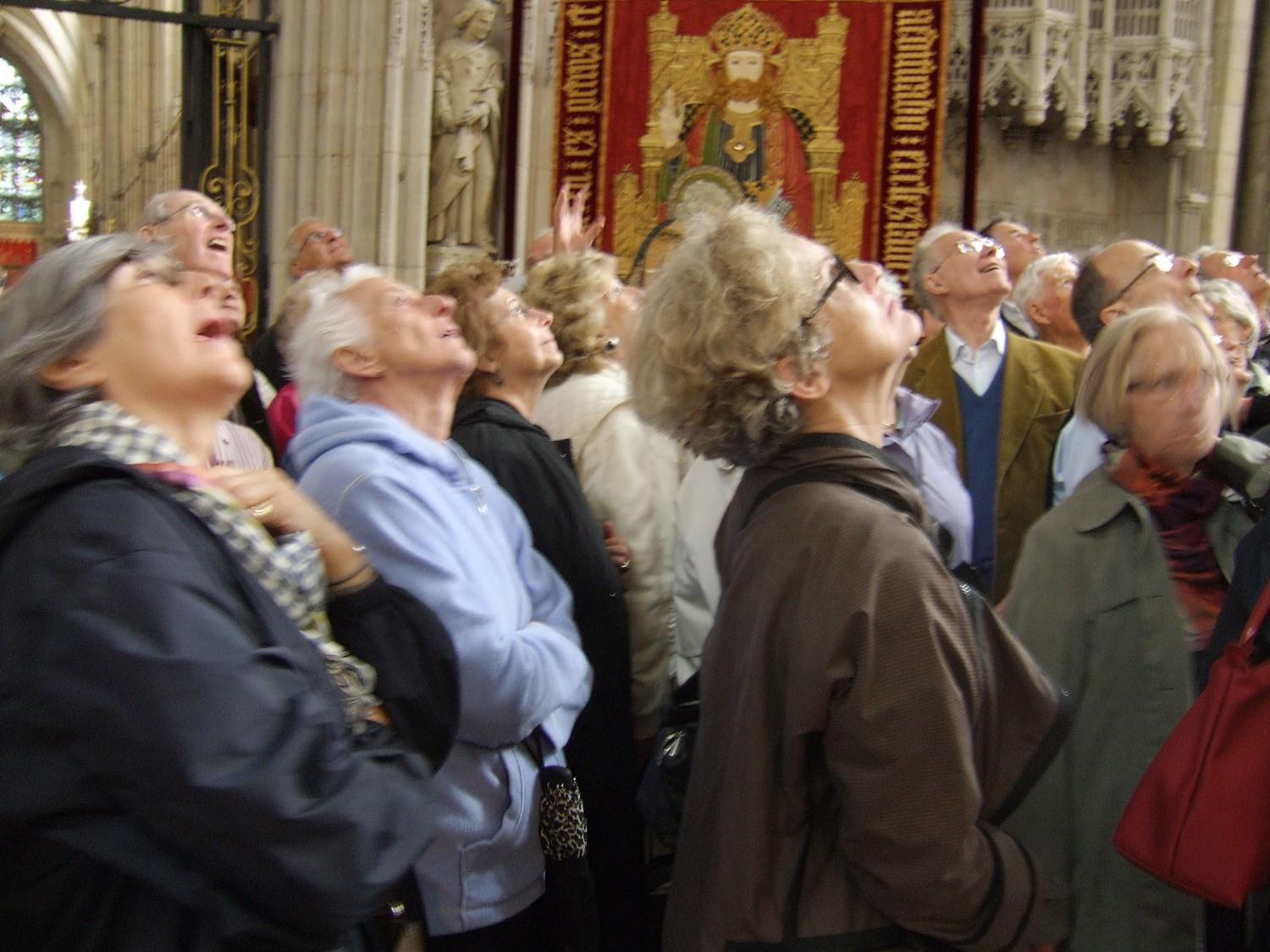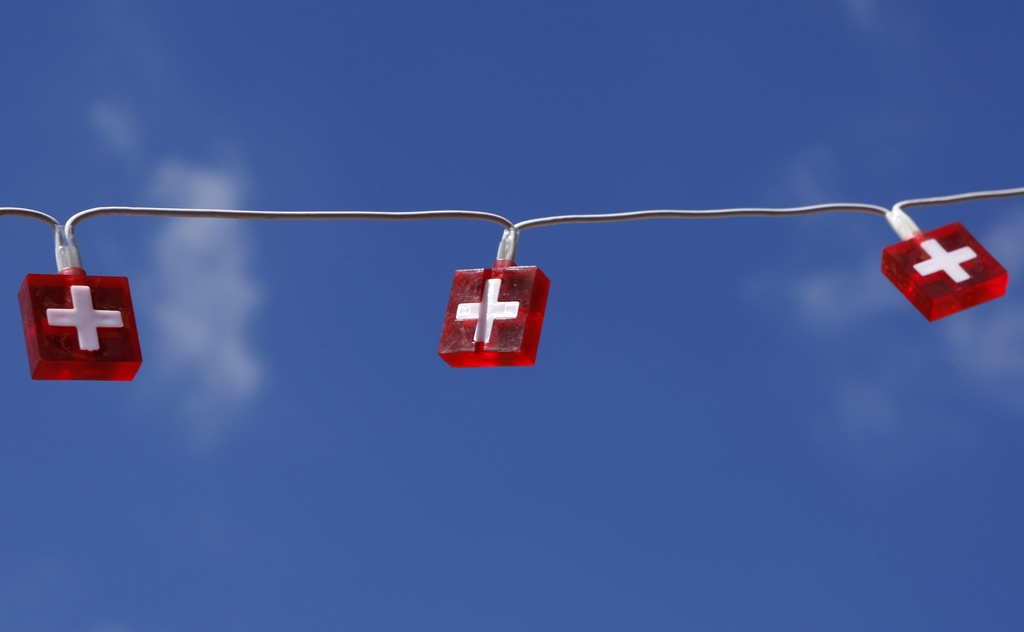Fireworks and food feature on Swiss national day

Swiss national day celebrations began in spectacular fashion in Basel, with an estimated 120,000 people turning out to watch the traditional fireworks display.
Lasting nearly half an hour, around 1,300 fireworks were set off from two barges floating on the River Rhine on Sunday night, the eve of national day on Monday, August 1.
And after weeks of wet and gloomy weather, spectators were rewarded with clear, if somewhat cool, conditions for the event which was complemented with music and food stalls to entertain crowds as they waited for night to fall.
In the capital Bern, the traditional open-door event at the parliament building proved as popular as ever on Monday, attracting some 4,000 people through the doors.
Retired people, tourists and families alike queued for about 15 minutes to visit of the historic building, with the third floor – usually closed to the public – also open for viewing.
While queuing to visit the halls of power, visitors were given gifts of Swiss chocolate and were treated to the delights of yodeling duo Edeldicht upon entering the grand hall.
Fun and food
Meanwhile, an estimated 200,000 people enjoyed the annual Brunch on the Farm events, with around 400 families opening their doors to serve up traditional farm fare to hungry participants.
Several politicians including Foreign Minister Micheline Calmy-Rey, Economics Minister Johann Schneider-Amman, Defense Minister Ueli Maurer and Interior Minister Didier Burkhalter also chose to participate in brunch events around the country.
Organised by the Swiss Farmers Association, the national day brunch features regional produce, farm animal petting for children, and has become something of a Swiss tradition since its inception 19 years ago.
Political jostling
With less than three months until voters go to the polls in federal elections, it was perhaps unsurprising that politicians used the day to sound out their policy platforms.
As the country continues its hotly contested debate over the role of immigration in Swiss society, President Calmy-Rey implored the Swiss to remain optimistic, open and tolerant.
She cited the recent success of the country’s U-21 football team which she said was comprised of players with names “which we don’t recognise as typical of our country”, as an example of a Switzerland which succeeds because it is a tolerant society.
“We can be proud of that Switzerland,” Calmy-Rey said.
Alluding to tensions with both the European Union and United States, Maurer – whose rightwing Swiss People’s Party recently launched an initiative to apply quotas to immigration from the EU – told his 350-strong audience at a brunch event in canton St Gallen that “an important quality of citizenship is the ability to say no”.
Justice Minister Simonetta Sommaruga, a member of the Social Democrats, pushed back at claims that immigration is hurting Swiss identity, saying: “Nobody has a monopoly on saying who is a real Swiss and who is not”.
More than 700 years ago, the inhabitants of Uri, Schwyz and Unterwalden signed a contract of mutual aid and protection, the Federal Charter, now considered to be Switzerland’s deed of foundation. This oath, said to be taken on August 1, 1291 on the Rütli meadow overlooking Lake Lucerne, was mainly an act of rebellion against the ruling Habsburgs.
The National Day on August 1 was, however, only instituted in 1891 to commemorate the 600th anniversary of the Swiss Confederation. The annual celebration was introduced in 1899, mainly at the insistence of the Swiss living abroad who, seeing the national days already celebrated in other countries, also wanted a special day.
For decades after that, the national day, however, was just an ordinary holiday and only some cantons declared the afternoon or the whole day as an official national holiday. A popular vote – with 83.3% approval – in 1993 made the event an official national holiday.
Celebrations are now held across the country, in which the anthem is sung. It exists in four versions: German, French, Italian and Romansh.
(Source: ch.ch)

In compliance with the JTI standards
More: SWI swissinfo.ch certified by the Journalism Trust Initiative




You can find an overview of ongoing debates with our journalists here . Please join us!
If you want to start a conversation about a topic raised in this article or want to report factual errors, email us at english@swissinfo.ch.